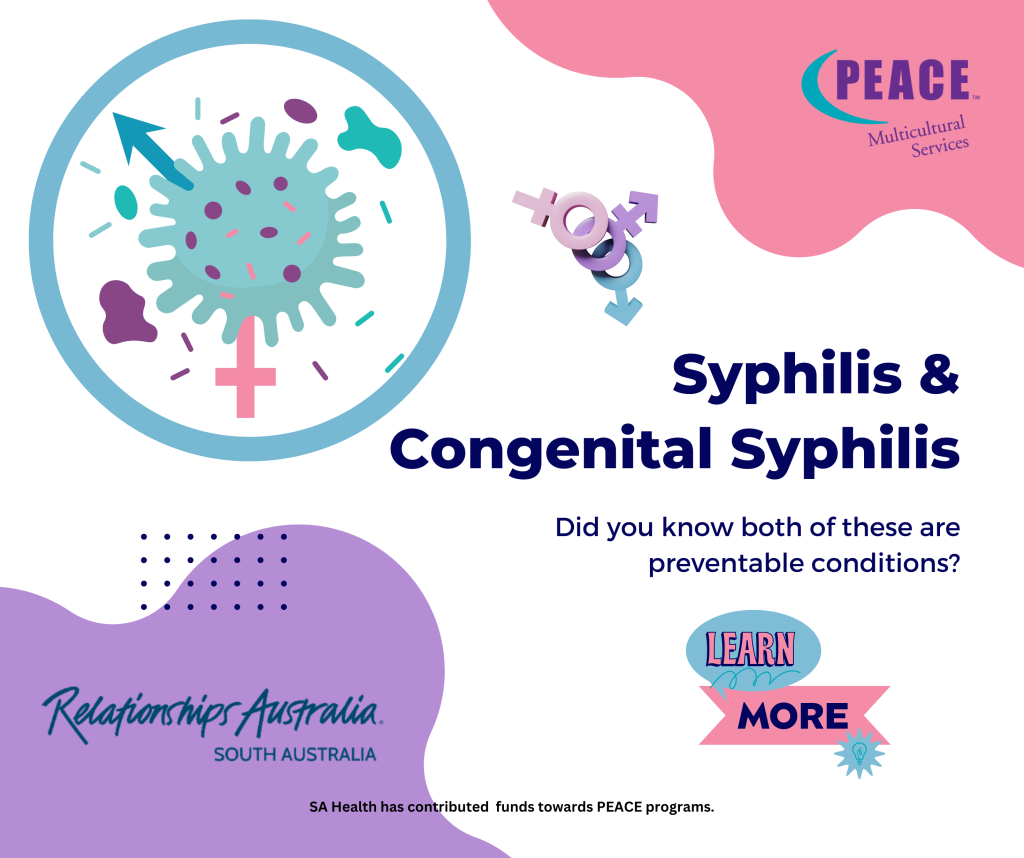Did you know that both of these conditions can be prevented?
Syphilis is a sexually transmitted infection that can have serious health consequences if left untreated, including damage to the heart, brain, nerves, and more. It’s important to get tested regularly if we’re sexually active.
Syphilis symptoms vary based on the stage of the infection, with some individuals showing none. Symptoms include ulcers, sores, rashes, white patches, hair loss, fatigue, and flu-like symptoms across primary, secondary, and tertiary stages.
Congenital Syphilis occurs when a pregnant person with syphilis transmits the infection to their baby, leading to risks like perinatal death and abnormalities. Early testing in pregnancy is vital to safeguard both parent and baby through treatment.
Syphilis treatment involves muscle-injected antibiotics, requiring follow-ups and blood tests to confirm clearance. After treatment, it is recommended to avoid sex for at least a week to prevent spreading the infection. Sexual contacts should be notified for testing and treatment. Syphilis is not spread through shared objects.
Let’s spread awareness about syphilis risks, symptoms, and prevention. Together, we can promote sexual health and well-being.
To know more about Syphilis transmission and prevention, visit SA Health website.
If you would like to talk about Syphilis in your own language, call PEACE Multicultural Services team on 08 8425 8110 or email at askpeace@rasa.org.au.
We can provide interpreters for you and our service is free of charge.


